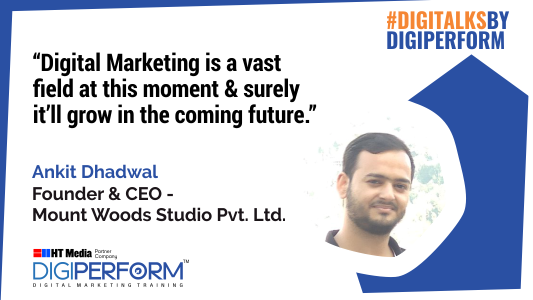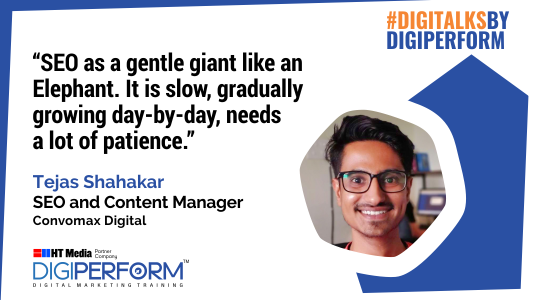- Level playing field: Any business can compete with any competitor regardless of size with a solid digital marketing strategy. Traditionally a smaller retailer would struggle to match the finesse of the fixtures and fittings of its larger competitors. Online, a crisp well thought out site with a smooth customer journey and fantastic service is king – not size.
- Reduced cost: Your business can develop its online marketing strategy for very little cost and can potentially replace costly advertising channels such as Yellow Pages, television, radio, and magazine.
- Simple to measure: Unlike traditional methods, you can see in real time what is or is not working for your business online and you can adapt very quickly to improve your results. For measuring traffic to your site you can use Google Analytics to measure specific goals you want to achieve for your website or blog and most packaged email marketing solutions provide good insight into how many people are opening, reading and converting from your emails.
- Real time results: you don’t have to wait weeks for a boost to your business like you would have to wait for a fax or form to be returned. You can see the numbers of visitors to your site and its subscribers increase, peak trading times, conversion rates and much more at the touch of a button.
- Refinement of your strategy: Basically anything that you capture in your customer journey can be reported on and honed for greater success at the fraction of the cost of traditional marketing. After all, how annoying is it to get a couple of forms returned from a mail shot. Marketing online enables you to refine your strategy at any point in time and see any improvements or opportunities for further refinement almost instantaneously.
- Brand Development: A well-maintained website with quality content targeting the needs and adding value to your target audience can provide significant value and lead generation opportunities. The same can be said for utilizing social media channels and personalized email marketing.
- Far greater exposure: your business can be seen anywhere in the world from one marketing campaign, the cost to do to use traditional methods would be considerable. Plus once you have optimized the Keyword search content on your website you should see a long-term return on your investment and will be fairly low cost to maintain your ranking.
- Viral: how often do your sales flyers get passed around instantly by your customers and prospects? Online, using social media share buttons on your website, email and social media channels enables your message to be shared incredibly quickly, just look how effective it is for sharing breaking news.
- Not Intrusive: I know most people hate receiving sales mail shots or phone calls at inconvenient times on stuff that they have little interest in. Online people get more choice to opt in or out of communication and often it’s relevant because they were the ones searching for it in the first place.
- Greater engagement: With digital marketing you can encourage your prospects, clients, and followers to take action, visit your website, read about your products and services, rate them, buy them and provide feedback which is visible to your market. So it doesn’t take long for good publicity to enhance the prospects of your business.
- Marketing Land (http://marketingland.com)
- Searchengineland (http://searchengineland.com)
- Kiss Metrics (https://www.kissmetrics.com/)
- HubSpot https://blog.hubspot.com/marketing &
- Moz (https://moz.com/blog)
- Social Media Examiner (http://www.socialmediaexaminer.com/)
- Neil Patel (http://neilpatel.com/blog/)
- Mobile is going to become the center of marketing. From cell phones to smartphones, tablets to wearable gadgets, the evolution of mobile devices is one of the prime factors influencing the marketing world. As the focus is shifting to smaller screens, brands will be able to strike up a more personalized relationship with their customers by leveraging the power of mobile.
- Transparency will dictate brand-customer relationships. Currently, customers are seeking more engagement from brands. This trend will continue with customers becoming more demanding in their expectation of transparency. Genuine brands – the ones that “walk the talk” and create real value – will be rewarded. This means brands that still haven’t made their customer dealings transparent are headed to a future of doom.
- The need for good content will not slow down. Ever, Content, particularly visual content, will rule the roost in the online marketing world, evolving into various forms and disrupting the conventional marketing models. Moreover, the speed at which a brand can create amazing content will play a part in their success.
- User-generated content will be the new hit. The power of user-generated content will surpass branded content as brands begin to relinquish control of their own brands’ marketing to their customers. From online reviews to social media posts and blogs, this means there will be a strong need for brands to create a positive impact in their consumers’ minds. In response to this model of content production, content co-creation between brands and consumers will become a popular trend.
- Social has become the next Internet. Social has become an integral part of the “broader marketing discipline.” As its impact grows stronger, most brands will fully transition their marketing efforts to social channels. As such, social has the full potential to become not just one of the channels but the channel.
- Brands will own their audience. By cultivating brand community and entering into direct conversations with their customers, brands will begin to own their audience in a way that will create loyalists and brand advocates. In the future of marketing, branding and marketing efforts will have their seeds rooted in what customers are talking about. The customers’ responses and feelings toward the brand will dictate future campaigns. Essentially, if the customers are happy, they’ll gladly wear the marketer’s hat and do what is needed to bring their favorite brand in focus.
- Brands solely focused on Millennial will go out of relevance. Brands will need to understand that the millennial are not a niche “youth” segment but a generation of people who will ultimately give way to a newer generation. Therefore, millennial-focused brands will have to change their game to stay relevant.
- Good brands will behave like product companies and not like service companies. While service companies aim to create a happy customer and look forward to a contract renewal, product companies thrive on innovation. So, for brands of the future, customer satisfaction and retention will not be enough. They will need to innovate more efficiently to create more value for their customers. However, great service will NEVER go out of style.
- Personalized, data-driven marketing will become more refined. There is a difference between data-driven marketing and intrusive marketing. While the former is based on relationship-building, the latter is nothing but old-school push marketing wrapped in a new cover. The difference between these two formats will become even more prominent in future. Marketers who focus on relationship building will be rewarded, while intruders will be shut out.
- More accurate metrics will surface. What most brands do in the name of measuring marketing success is look at hollow “vanity” metrics such as likes, shares, or tweets. Even in terms of data mining, we are still developing more sophisticated means to capture the right data. Many ideas are hypothesized, but few are practical. The future will witness the rise of better analytical tools to help marketers gauge the success of their campaigns.





